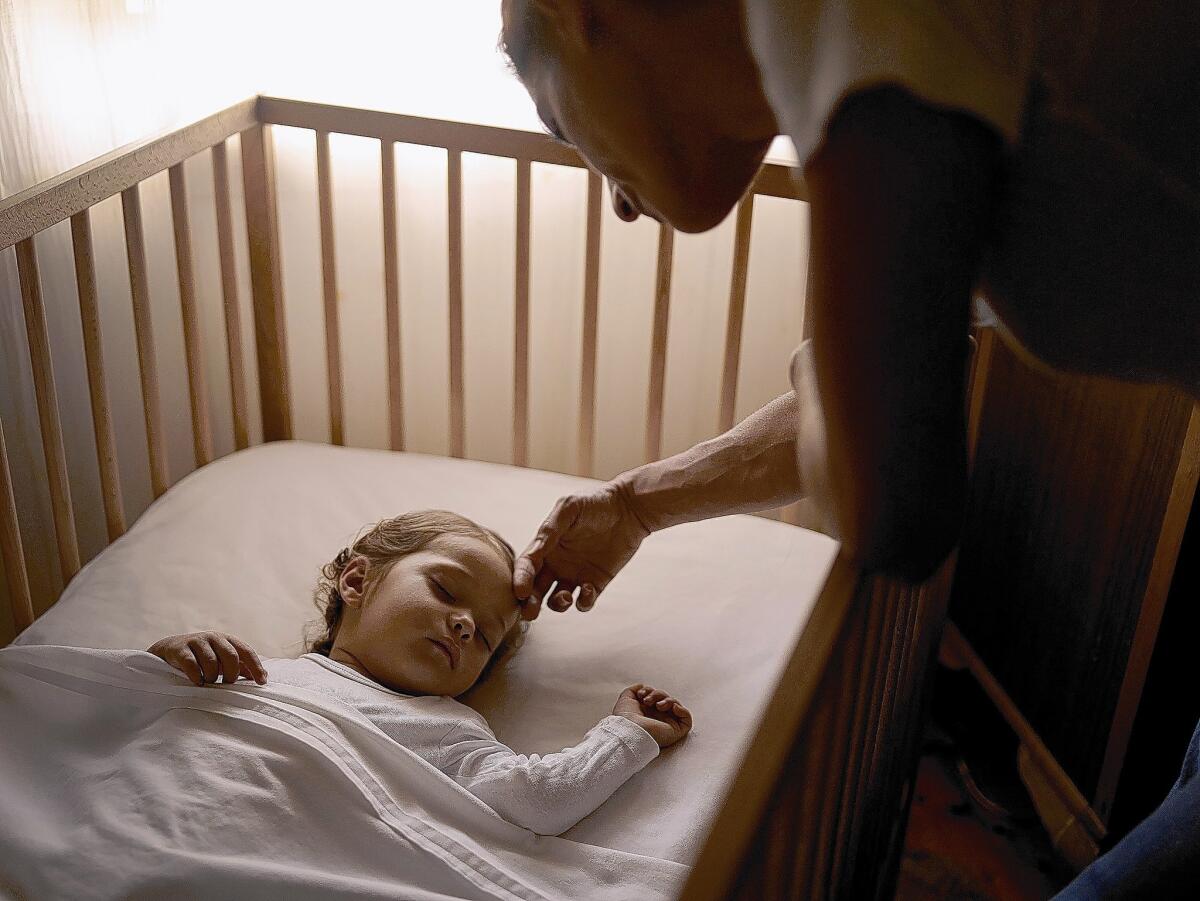Hazards of the nightly sleep-wake-repeat pattern are studied

- Share via
Sometimes science quantifies something many of us know to be true. So listen up, new parents: Waking up repeatedly to care for a little one isn’t good for your moods and your ability to attend to tasks, and it’s just as bad as not sleeping much at all.
So if you get up in the morning feeling more exhausted than when you went to bed, you’ve got research on your side.
Researchers at Tel Aviv University tracked 58 young adults in two groups: those who got four hours of sleep and those who got eight but had that sleep repeatedly interrupted by tasks of at least 10 minutes — not unlike waking to feed or soothe an infant, or dealing with work during an on-call shift.
“Vast proportions of the population experience night wakings regularly due to occupational demands, environmental circumstances or the very common parental need to tend to a child during the night,” the researchers wrote recently in the journal Sleep Medicine. They cited a study of nearly 30,000 parents in 11 countries that showed about a quarter wake up twice a night with their children up to age 3, and an additional 19.5% reported an average of three or more night wakenings.
Such interruptions “disrupt the natural sleep rhythm. The impact of such night wakings on an individual’s daytime alertness, mood and cognitive abilities had never been studied,” Avi Sadeh, a professor at the university’s School of Psychological Sciences said in a statement. Sadeh directs a sleep clinic at the university. “Our study demonstrates that induced night wakings, in otherwise normal individuals, clearly lead to compromised attention and negative mood.”
The research is important because many people don’t realize how their interrupted sleep affects them, said Vonda Dennis, owner of the Stork Stops Here, a Los Angeles company that handles prenatal and postpartum care, primarily sleep issues.
“Whatever they’re already dealing with is going to be exacerbated,” Dennis said by phone; she is not connected to the study. She cited one mother “who couldn’t make a decision on salad dressing without bursting into tears,” and a surgeon parent whom she had to remind that going to work sleep-deprived could be dangerous.
Dennis said she tries to settle the infant on a schedule as early as possible.
Sadeh and colleagues monitored sleep of volunteers in their homes. The participants wore wristwatch-style devices that could detect sleep and wakefulness. They also completed questionnaires before going to bed and in the morning. Everyone slept one eight-hour night.
Then, those in one group went to bed for eight hours but were awakened four times by telephone and told to complete a 10- to 15-minute computer task before returning to bed. In the other group, participants went to bed for four hours. The effects were assessed with various performance and mood tests.
The interrupted sleep “leads to significant negative effects on mood and sustained attention, which are indistinguishable from those results from sleep restriction of four hours per night,” the researchers wrote.
This area of research, the authors said, is new, and additional work is needed to look at spontaneous versus induced awakenings and other issues.
Follow me on Twitter: @mmacvean





